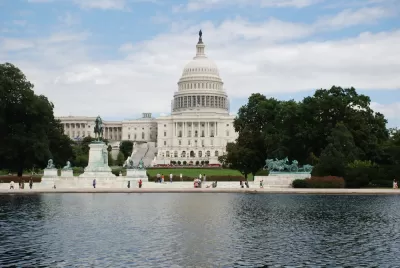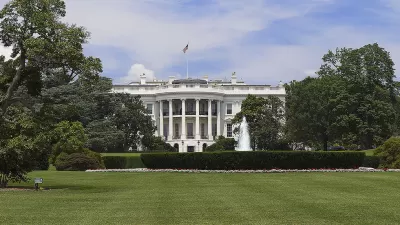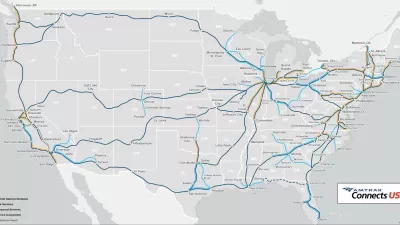The Build Back Better agenda is in retreat—including much of the substance on a plan to spend $330 billion to tackle the nation's housing affordability crisis.

Negotiations over the federal budget reconciliation bill, which includes several components of critical importance to the planning field, such as the Infrastructure Investment and Jobs Act, took a turn at the end of October.
Jersulem Demsas reports on how the budget bill has transformed the Biden administration's Build Back Better agenda—a key promise of the Biden campaign during the election and a frequent talking point in the White House as the Covid-19 pandemic has lingered. Demsas describes the evolution of the Build Back Better in dire terms:
This package was both a once-in-a-generation investment and also barely enough to scratch the surface. Now, even those proposed investments are being cut down as part of negotiations over the final package.
More concerning, according to the article, is the bill's avoidance of the root of the problem. To elaborate this point, Demsas interviews Paul Williams, a fellow at the Jain Family Institute, for details of the new, adjusted Build Back Better plan regarding issues like the Housing Trust Fund, down payment assistance, exclusionary zoning reform, and more.
A planning-specific component of Build Back Better, the "Housing Supply and Affordability Act," is still in the reconciliation bill, according to Tweets by the Planners' Advocacy Network of the American Planning Association. Williams, however, doubts the grant program is substantial enough to "swing the pendulum for a lot of jurisdictions, particularly those with some of the most egregious policies."
FULL STORY: Congress isn’t going to save the housing market

Alabama: Trump Terminates Settlements for Black Communities Harmed By Raw Sewage
Trump deemed the landmark civil rights agreement “illegal DEI and environmental justice policy.”

Study: Maui’s Plan to Convert Vacation Rentals to Long-Term Housing Could Cause Nearly $1 Billion Economic Loss
The plan would reduce visitor accommodation by 25% resulting in 1,900 jobs lost.

Planetizen Federal Action Tracker
A weekly monitor of how Trump’s orders and actions are impacting planners and planning in America.

Wind Energy on the Rise Despite Federal Policy Reversal
The Trump administration is revoking federal support for renewable energy, but demand for new projects continues unabated.

Passengers Flock to Caltrain After Electrification
The new electric trains are running faster and more reliably, leading to strong ridership growth on the Bay Area rail system.

Texas Churches Rally Behind ‘Yes in God’s Back Yard’ Legislation
Religious leaders want the state to reduce zoning regulations to streamline leasing church-owned land to housing developers.
Urban Design for Planners 1: Software Tools
This six-course series explores essential urban design concepts using open source software and equips planners with the tools they need to participate fully in the urban design process.
Planning for Universal Design
Learn the tools for implementing Universal Design in planning regulations.
Caltrans
Smith Gee Studio
Institute for Housing and Urban Development Studies (IHS)
City of Grandview
Harvard GSD Executive Education
Toledo-Lucas County Plan Commissions
Salt Lake City
NYU Wagner Graduate School of Public Service





























